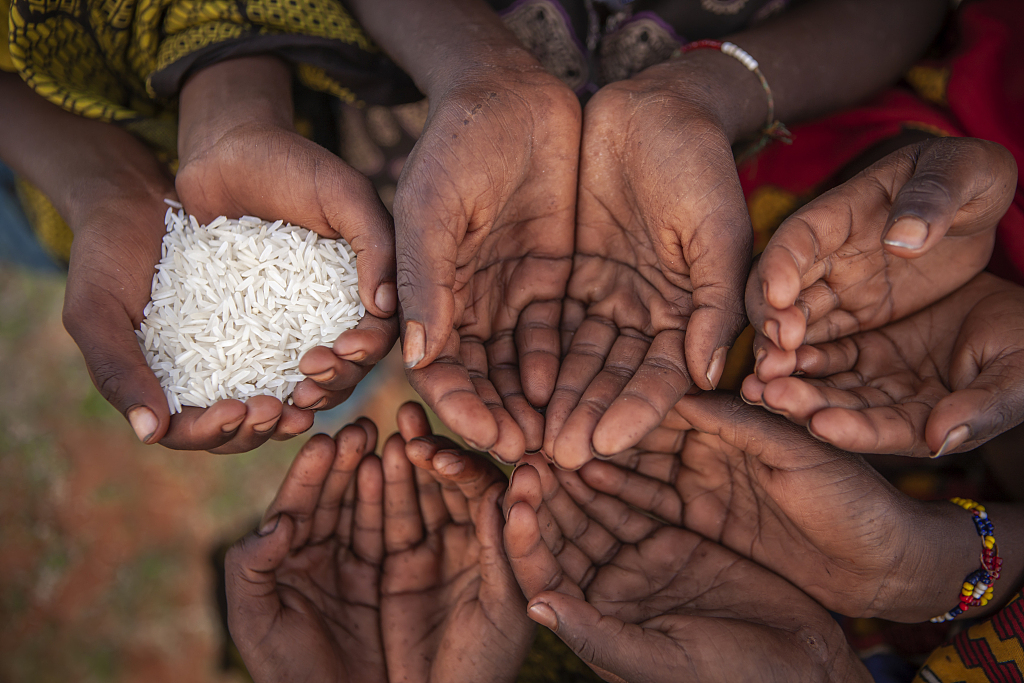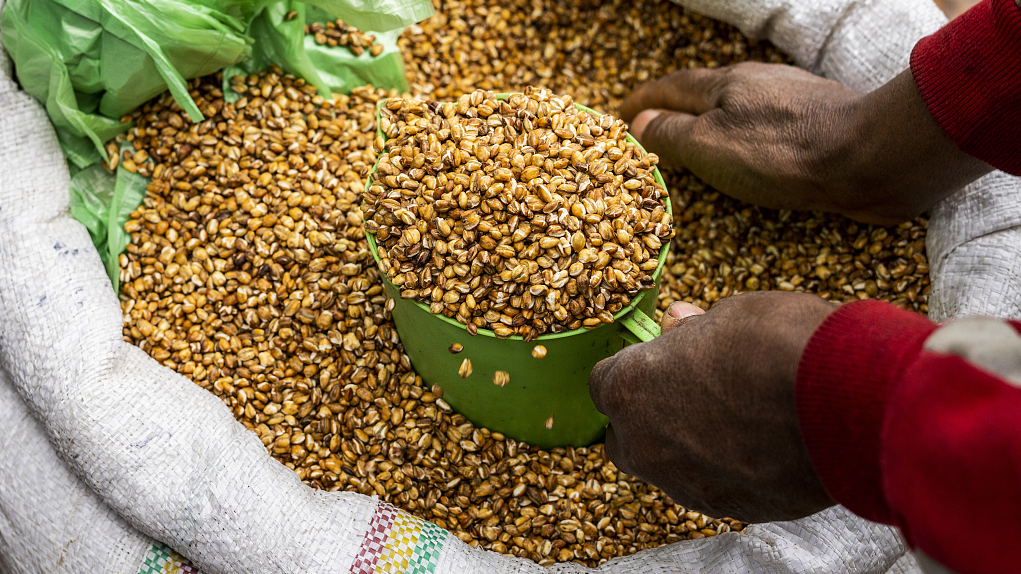Countries in the Horn of Africa are facing severe challenges as extreme weather events and food insecurity persist, the World Health Organization (WHO) has warned.
The WHO, in its latest Horn of Africa food insecurity and health situation report issued Monday, warned that Horn of Africa countries are grappling with a combination of extreme weather events, widespread food insecurity and health crises.
It said the region has continued to face extreme weather events including drought and flooding, and the impacts of these events are likely to be exacerbated by the onset of El Niño.

Over 61 million people in the Horn of Africa are in a state of crisis and above, facing elevated levels of acute food insecurity, according to the WHO. /CFP
According to the WHO, over 61 million people in the region are in a state of crisis and above, facing elevated levels of acute food insecurity.
“The region is battling with multiple outbreaks of diseases including cholera in four countries, measles and malaria in all the seven countries and dengue fever in Ethiopia and Djibouti,” the report read.
It said the deterioration of the nutritional situation has led to an estimated 30 percent increase in the number of children with acute malnutrition in hotspot areas. It said the displacement to the neighboring countries has also increased the humanitarian needs, especially in South Sudan and Ethiopia.
The WHO, citing the World Meteorological Organization’s confirmation regarding the onset of El Niño in the region, said all the countries in the region are expected to face its health impact, either through below or above-average rains in the last quarter of 2023.

Horn of Africa countries are grappling with a combination of extreme weather events, widespread food insecurity and health crises. /CFP
According to the report, the situation in Sudan is particularly concerning, with an estimated 20.3 million people, accounting for 42 percent of the country’s population, experiencing high levels of acute food insecurity.
The report further highlighted the scale of displacement in the region, with over 14.9 million people uprooted from their homes due to conflict, drought and flooding.
The WHO said it remains committed to providing vital support to all seven countries in the region, namely Djibouti, Kenya, Ethiopia, Somalia, Sudan, South Sudan and Uganda.
WHO

